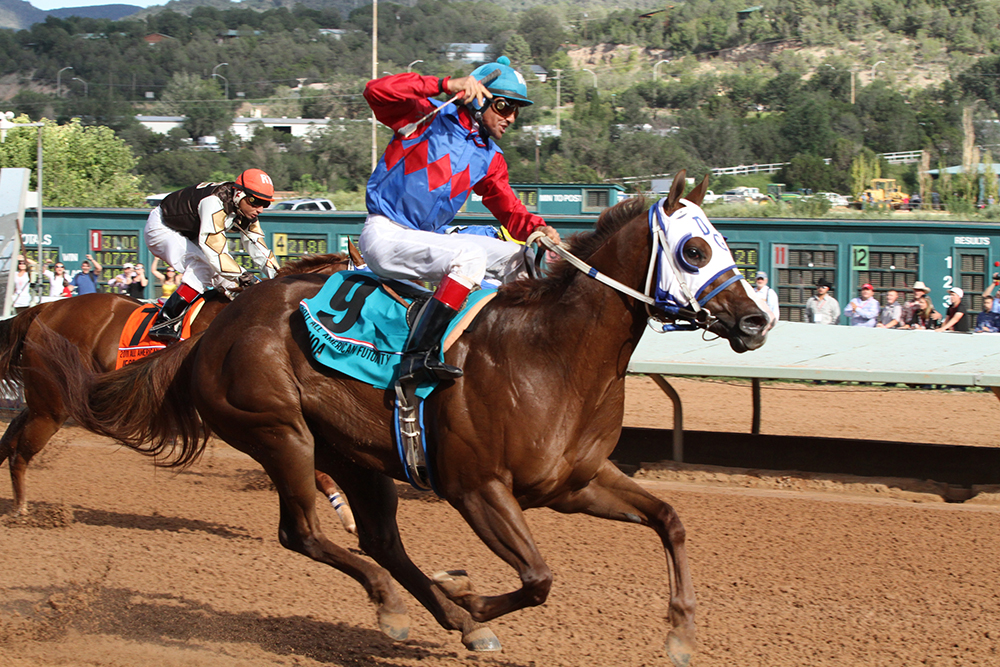
Here are some of the qualities of a good racing Quarter Horse breeding farm:
- Location: The farm should be located in an area with a mild climate and good soil conditions. The climate should be warm enough to allow the horses to breed year-round, but not too hot or humid. The soil should be well-drained and free of toxins.
- Facilities: The farm should have a variety of facilities to accommodate the needs of the horses, including a breeding barn, a foaling barn, a quarantine barn, and a turnout area. The breeding barn should be spacious and well-ventilated. The foaling barn should be clean and comfortable. The quarantine barn should be isolated from the other horses to prevent the spread of disease. The turnout area should be large enough for the horses to exercise and socialize.
- Staff: The farm should have a team of experienced and knowledgeable staff who are dedicated to the care and well-being of the horses. The staff should be familiar with the needs of Quarter Horses and be able to provide them with the highest quality of care.
- Horses: The farm should have a good selection of Quarter Horses that are suitable for breeding. The horses should be healthy, sound, and have the potential to produce foals that are competitive in racing.
- Program: The farm should have a well-structured program that will help the horses reach their full potential. The program should include a variety of breeding practices, such as artificial insemination and embryo transfer, to ensure that the horses are bred to the best possible partners.
In addition to these qualities, a good racing Quarter Horse breeding farm should also be committed to the ethical treatment of animals. The farm should have a strong welfare program that ensures the horses are well-cared for and have a good quality of life.
Here are some additional things to consider when choosing a racing Quarter Horse breeding farm:
- The farm's reputation: Do your research and find out what other people have to say about the farm. Talk to other owners, trainers, and veterinarians who have experience with the farm.
- The farm's financial stability: Make sure the farm is financially stable and has the resources to care for the horses.
- The farm's breeding program: If you are interested in breeding Quarter Horses, find out about the farm's breeding program.
- The farm's location: Consider the location of the farm in terms of your own needs and preferences. Do you want to be close to a racetrack or do you prefer a more remote location?
Choosing a good racing Quarter Horse breeding farm is an important decision. By considering the qualities listed above, you can be sure to find a farm that will provide your horses with the best possible care and help them reach their full potential.
Breeding - Quarter Horse - United States | International (Click here)
Arizona
California
- Burns Ranch, 28940 Scott Road, Menifee, CA 92584
- Legacy Ranch, 21455 N. Clements Road, Clements, CA 95227
Florida
Indiana
- Midwest Equine & Veterinary Hospital, 5284 South 150 West, Trafalgar, IN 46181
- West Central Veterinary Services, 1472 S US Hy 41, Rockville, IN 47872
Louisiana
- Delta Equine Center, P.O. Box 523, Vinton, LA 70668
- Hart Farms, 15122 L & L Road, Kaplan, LA 70548
- Louisiana Center for Equine Reproduction, 660 Montgomery Road, Opelousas, LA 70570
- Robicheaux Ranch Inc., 1064 Grand Bois Road, Breaux Bridge, LA 70517
Michigan
New Mexico
- A & A Ranch, 1713 W.Washington, Anthony, NM 88021
- Armstrong Equine Services, 175 Esslinger Road, La Mesa, NM 88044
- Double L L Farm, P.O. Box 40, Bosque, NM 87006
- TNL Farms, Inc., 285 Highway 116, Bosque, NM 87006
Oklahoma
- Bob Moore Farms, 4887 Broad Acre Road, Norman, OK 73072
- Oklahoma Equine Reproductive Center, 2652 Reece Lake Road, Washington, OK 73093
- Royal Vista Ranches, LLC, 26822 State Highway 59, Wayne, OK 73095
South Dakota
Texas
- 6666 Ranch, P.O. Box 130, Guthrie, TX 79236
- Granada Farms, P.O. Box 70, Wheelock, TX 77882
- Humphrey Quarter Horses, 10912 E. Highway 82, Whitesboro, TX 76273
- Scarlett Hill Farm, Inc., 802 Scarlett Road, Weatherford, TX 76087
- Weatherford Equine Breeding Center, P.C., 1877 Mineral Wells Hwy., Weatherford, TX 76088































